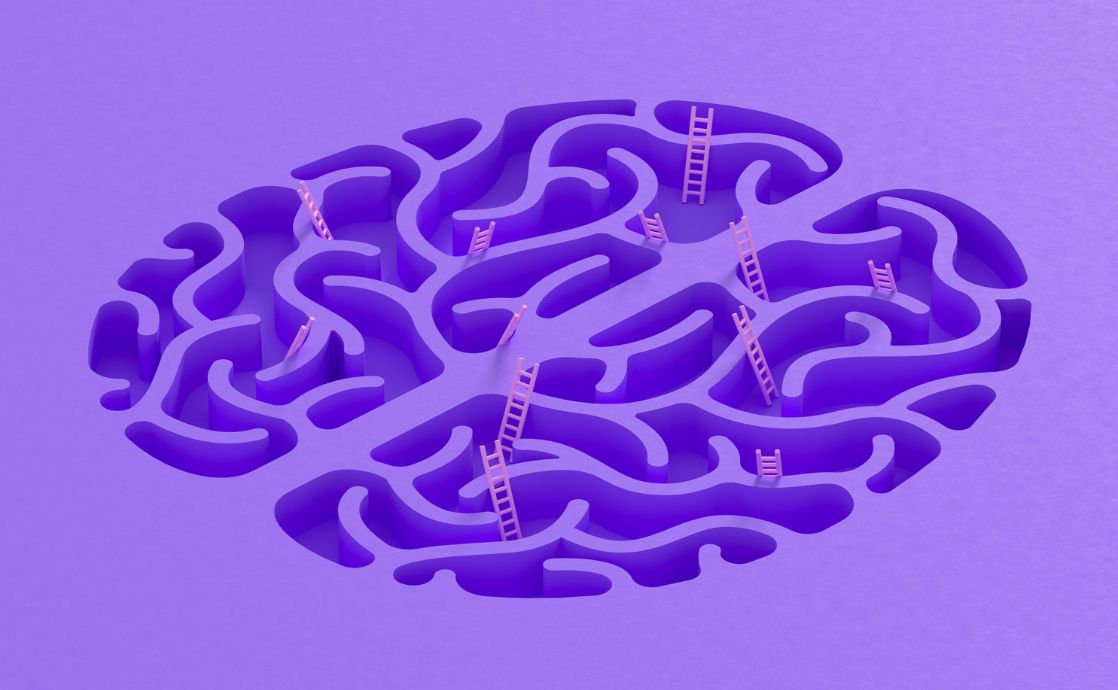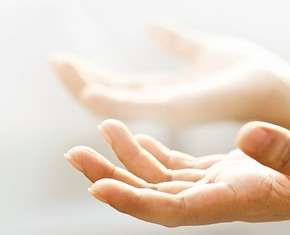The views expressed in our content reflect individual perspectives and do not represent the authoritative views of the Baha'i Faith.
In part one of this three-part essay, I discussed my period of “spiritual thirst” and its symptoms of low energy, lack of focus, and jumbled thoughts. Have you ever felt that way yourself?
Having forgotten the daily “push/pull” dynamic between the spiritual and the material, I had neglected my spiritual side in favor of irrational ideas about “getting things done.” The negative effects multiplied until I prayed and listened to my inner spirit — which immediately diagnosed the problem.
Of course, in my hyper-productive “runaround-rush around- speed around” mode, I had not been meditating either.
RELATED: Meditation: The Key to Insight and Self-Knowledge
In Baha’i life, meditation forms the second key factor in the spiritual nourishment process. The human meditative faculty, which is an innate ability in all of us, provides the mechanism through which our material mind and body link to our soul — our spiritual reality. For this reason, it would be difficult to overstate its importance.
To Be Human Is to Meditate
In a speech he gave in Paris, Abdu’l-Baha, the son and successor of the prophet founder of the faith, Baha’u’llah, said:
You cannot apply the name ‘man’ to any being void of this faculty of meditation; without it he would be a mere animal, lower than the beasts.
Through the faculty of meditation man attains to eternal life; through it he receives the breath of the Holy Spirit — the bestowal of the Spirit is given in reflection and meditation.
I must confess that the first time I read this quote, I was quite taken aback. To me, it seemed like an exaggeration or overstatement of some kind. I am not even human without meditation? Really?
But hold on — I was wrong. Information from various branches of science during the past 50 years seems to support this viewpoint. Oh, and by the way, the unity of science and religion is a key Baha’i principle.
The Science of Meditation: Changing the Brain
Where to begin? Let’s start with an article by Matt J. Rossano in the 2007 Cambridge Archaeological Journal entitled “Did Meditating Make Us Human?” In the article, Rossano argues that the “campfire rituals of focused attention” of early humans increased their brain’s working memory capacity and attention spans, ultimately allowing them to develop symbolic communication and complex problem-solving. Now, that is taking the history of meditation about as far back as it can go!
Recent studies in neurobiology confirm Rossano’s premise that meditating enhances the function and structure of the brain. Thousands of studies over the past 50 years have shown significant and measurable improvements in attention regulation, self-awareness, emotion regulation, and overall self- regulation in those who meditate.
In the field of medicine, the benefits of regular meditation include but are not limited to improving sleep, reducing stress, lowering blood pressure, reducing the risk of heart disease and other illnesses, improving the immune system, decreasing cognitive decline from aging, reducing chronic pain, lengthening the life-span … I’ll stop here. The list is virtually endless.
In psychology, mindfulness meditation has been shown to reduce anxiety and depression, chronic pain, and the symptoms of post-traumatic stress disorder. It is a useful adjunct to treatment for any mental health issue that includes problems with mood, self-awareness, emotional control, or self-regulation, including recovery from addiction.
The health and wellness field uses mindfulness meditation for stress reduction, problems with sleep, anxiety, and mood. It also serves as a treatment for anger issues and increases one’s capacity for kindness, empathy, and compassion.
Commercializing Meditation
The evidence for the efficacy of meditation is now so solid and widespread, it has become commercialized. A simple Google search reveals more than 2500 meditation apps now available, with over 2O percent of US consumers reportedly using one during the third quarter of 2022.
Even automobile manufacturers have now become concerned with “HWW” in car design — “health, wellness, and well-being.” At least one car maker is creating interiors to be compatible with meditating and includes a one-year free subscription to a meditation app with the purchase of one of their cars!
RELATED: How Meditation Can Help Drive Scientific Discovery
But wait! It seems that the spiritual point of mindfulness meditation has been removed from many of these approaches. Abdu’l-Baha explained that what he called the “meditative faculty” can be used to gain spiritual sustenance — or not. He said:
The meditative faculty is akin to the mirror; if you put it before earthly objects it will reflect them. Therefore if the spirit of man is contemplating earthly subjects he will be informed of these.
But if you turn the mirror of your spirits heavenwards, the heavenly constellations and the rays of the Sun of Reality will be reflected in your hearts, and the virtues of the Kingdom will be obtained.
So here’s my question — is this quote correct, or can the meditative faculty be used in beneficial ways without it being turned “heavenwards” toward the realm of the spirit? In other words, what should we think about all these apps and gadgets that promise to help us sleep, relax, succeed, and so on?
To my knowledge, one of the first people who tried to answer this question scientifically and pull meditation from its spiritual roots was a physician named Herbert Benson, MD. His work is the subject of part three.
















Comments
Sign in or create an account
Continue with Googleor